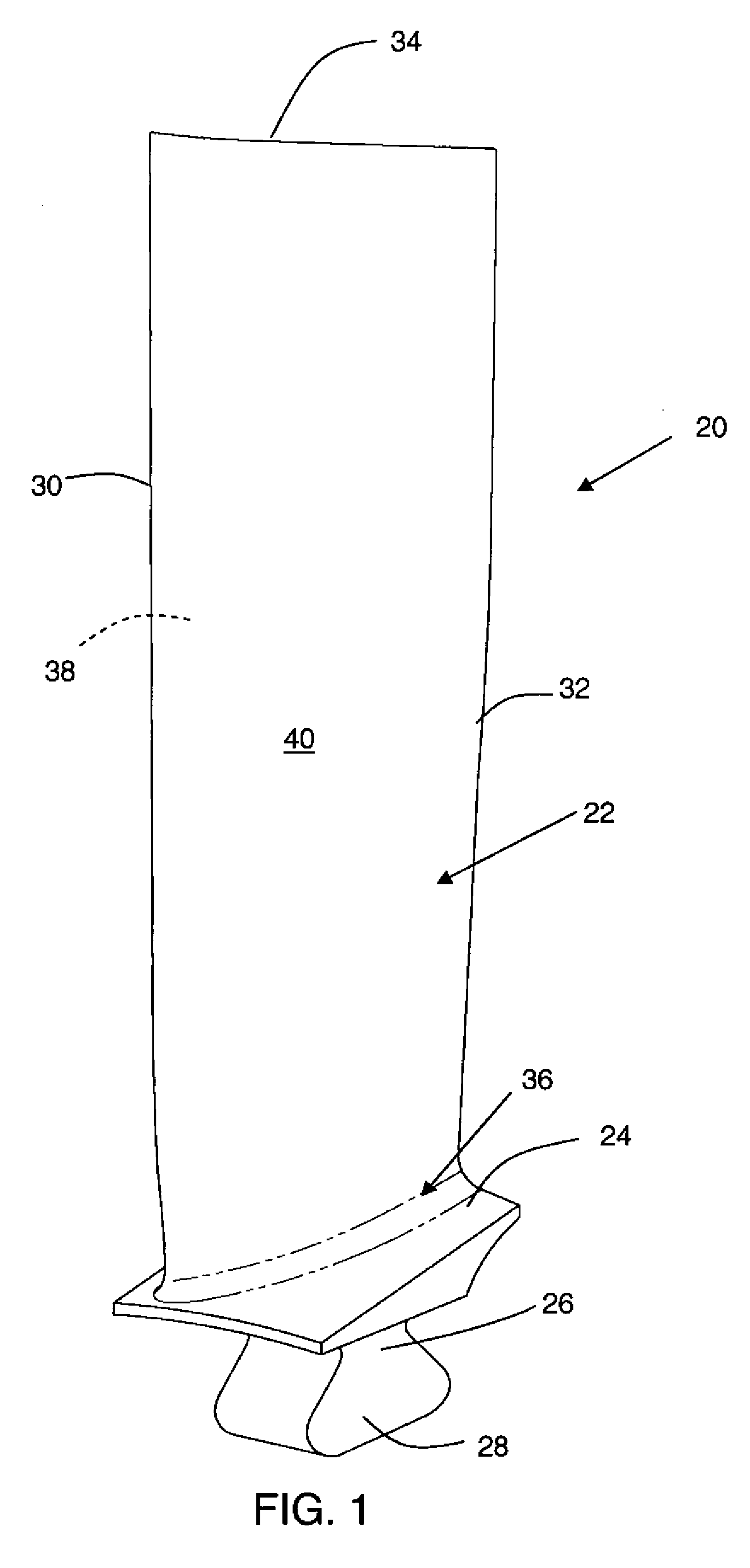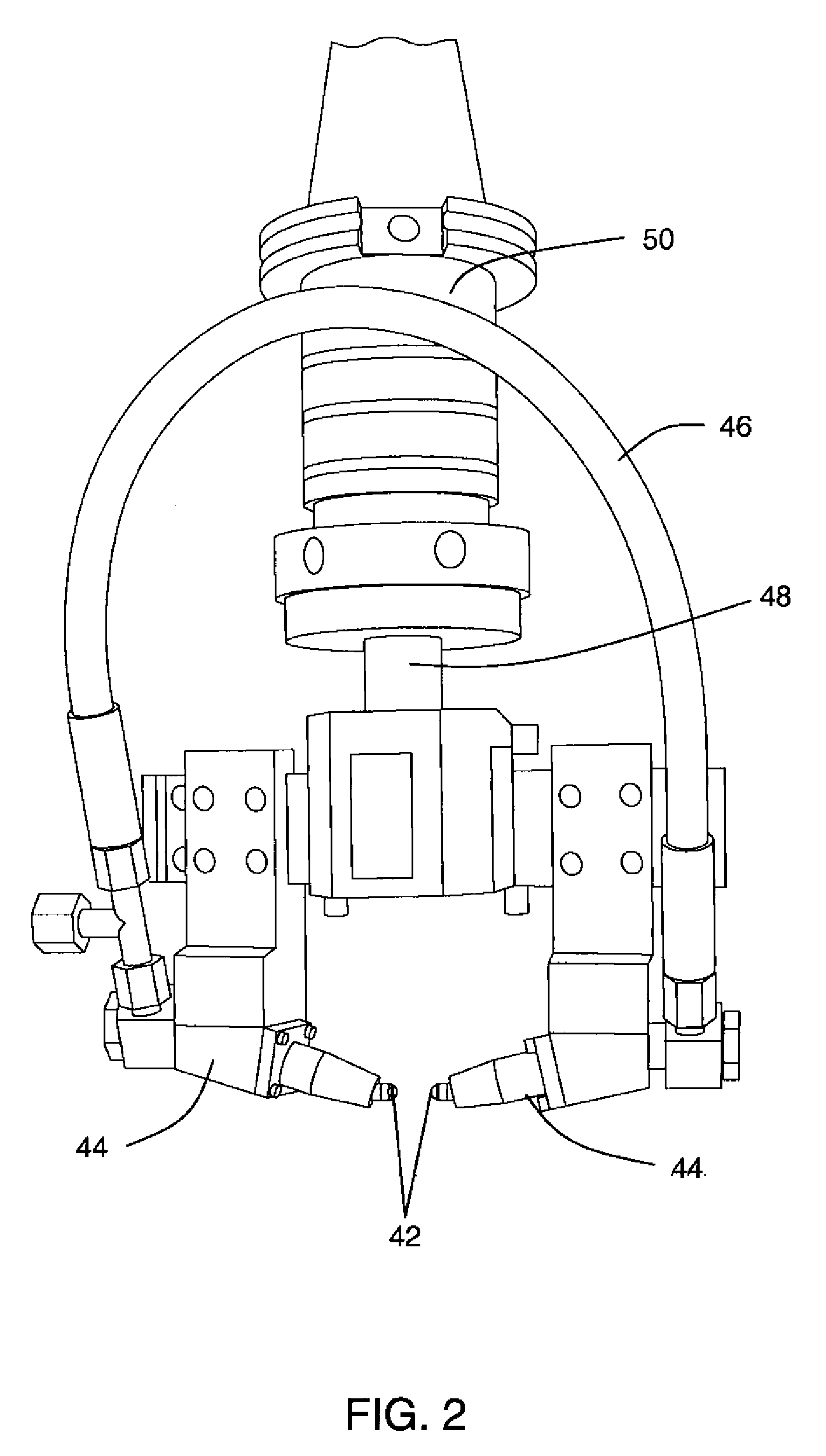Method for increasing fatigue notch capability of airfoils
a technology of airfoil and notch capability, which is applied in the field of fatigue resistance and damage tolerance components, can solve the problems of reducing the life of parts, repair or replacement, and prone to cracking from fatigue and damage, so as to reduce the propagation of cracks and avoid deformation of the leading edge
- Summary
- Abstract
- Description
- Claims
- Application Information
AI Technical Summary
Benefits of technology
Problems solved by technology
Method used
Image
Examples
Embodiment Construction
[0013]Referring to the drawings wherein identical reference numerals denote the same elements throughout the various views, FIG. 1 illustrates an exemplary gas turbine engine compressor blade 20, before treatment. This component is used merely as an example of a part to which the method of the present invention may be applied the present invention is equally applicable to other types of components susceptible to cracking from fatigue or damage, such as compressor stator vanes, fan blades, turbine blades, shafts and rotors, stationary frames, actuator hardware and the like. Such components may be made from metal alloys, ceramics, or composite materials (e.g. carbon fiber composites). Typically, such blades are made of an alloy based on titanium, iron, or nickel. Examples of such alloys that are commercially available include Ti6-4, Ti 6-2-4-2, A-286, C 450, and In 718. The compressor blade 20 includes an airfoil 22, a platform 24, and a shank 26. In this particular example the shank ...
PUM
| Property | Measurement | Unit |
|---|---|---|
| offset distance | aaaaa | aaaaa |
| diameter | aaaaa | aaaaa |
| hydrostatic pressure | aaaaa | aaaaa |
Abstract
Description
Claims
Application Information
 Login to View More
Login to View More - R&D
- Intellectual Property
- Life Sciences
- Materials
- Tech Scout
- Unparalleled Data Quality
- Higher Quality Content
- 60% Fewer Hallucinations
Browse by: Latest US Patents, China's latest patents, Technical Efficacy Thesaurus, Application Domain, Technology Topic, Popular Technical Reports.
© 2025 PatSnap. All rights reserved.Legal|Privacy policy|Modern Slavery Act Transparency Statement|Sitemap|About US| Contact US: help@patsnap.com



